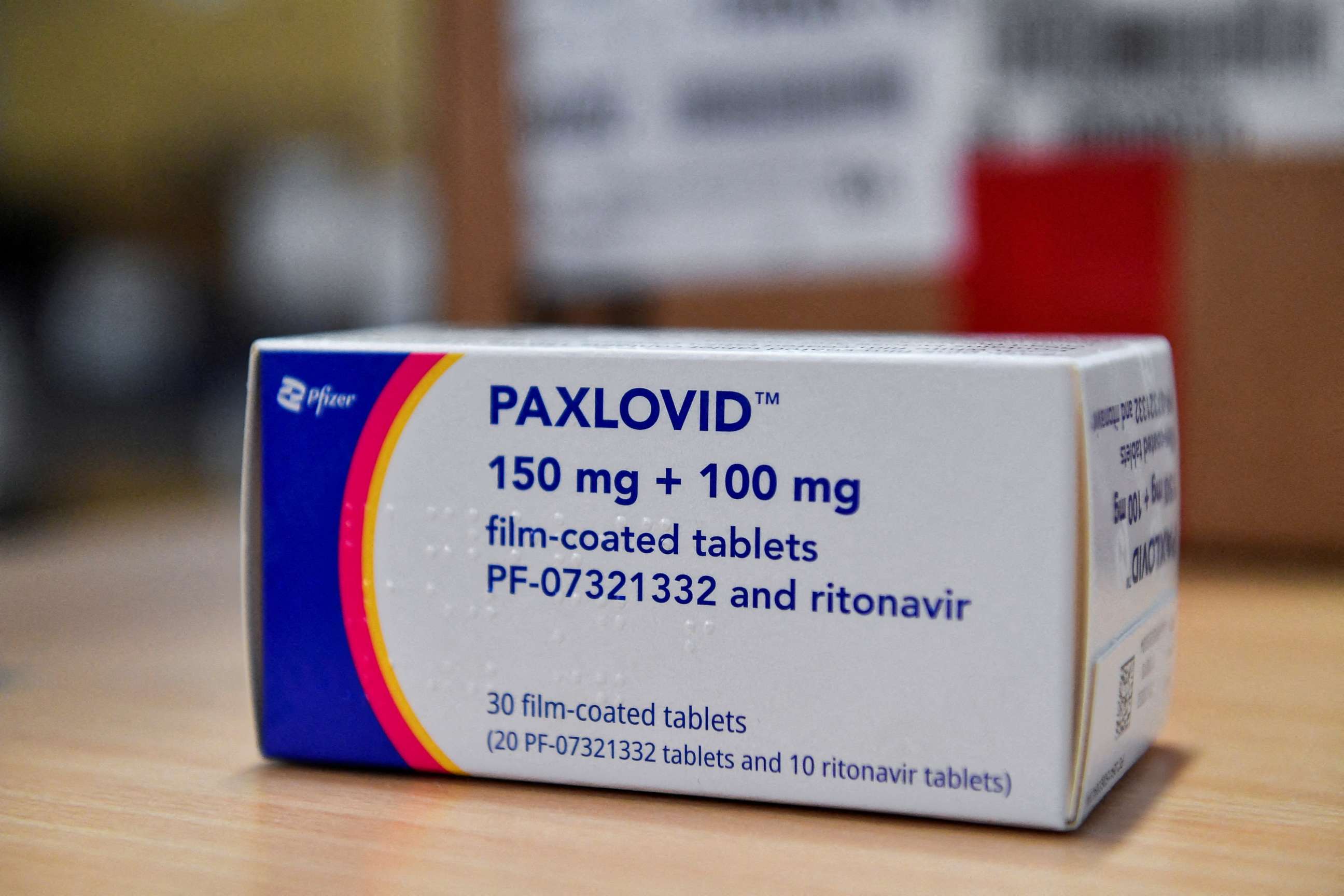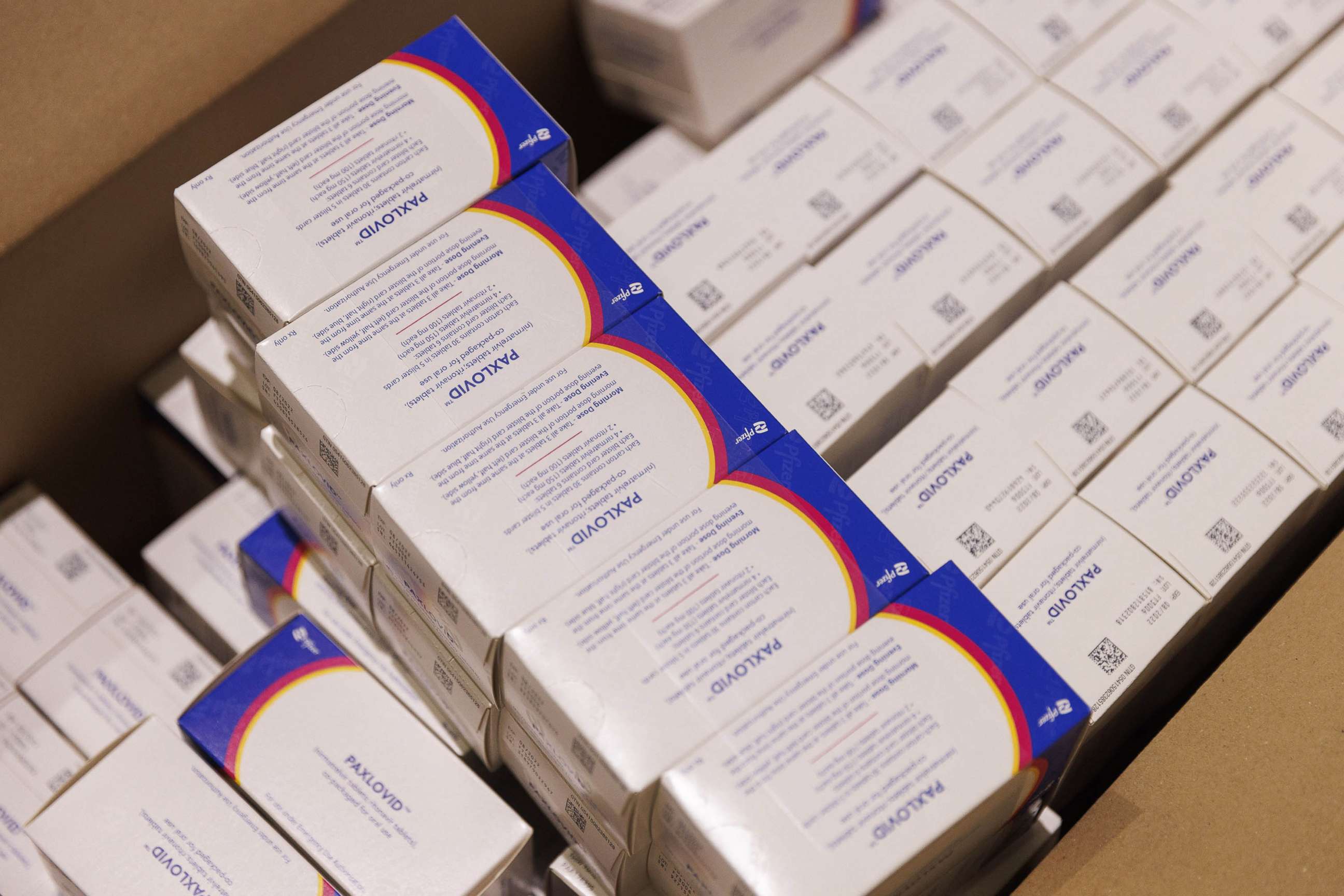More than 30 companies to produce generic version of Pfizer's COVID pill
The generic version will be distributed to 95 low- and middle-income countries.
The United Nations-backed Medicines Patent Pool announced Thursday it has signed an agreement with 35 companies around the globe to produce generic versions of Pfizer's COVID-19 antiviral pill.
The agreement will allow the treatment to be supplied to 95 low- and middle-income countries, home to more than half of the world's population, according to the MPP.
Clinical trial data has shown the pill, sold under the brand name Paxlovid, reduces the risk of hospitalization and death from COVID by 89% if taken within three days of the onset of symptoms.
Paxlovid is currently given as three pills twice daily over the course of five days.
The pill will be easier to distribute to hard-to-reach areas than monoclonal antibodies, which are given intravenously and require a medical professional to administer the treatment.

"We have established a comprehensive strategy in partnership with worldwide governments, international global health leaders and global manufacturers to help ensure access to our oral COVID-19 treatment for patients in need around the world," Pfizer CEO Albert Bourla said in a statement.
The statement continued: "The MPP sublicensees and the additional capacity for COVID-19 treatment they will supply will play a critical role to help ensure that people everywhere, particularly those living in the poorest parts of the world, have equitable access to an oral treatment option against COVID-19."
Paxlovid is made up of two medications: ritonavir, which is commonly used to treat HIV and AIDS, and nirmatrelvir, an antiviral that Pfizer developed to boost the strength of the first drug.
Together, they prevent an enzyme the virus uses to make copies of itself inside human cells and spread throughout the body.
According to the agreement, the companies will be able to take out sublicenses to produce raw ingredients of nirmatrelvir, co-package it with ritonavir or both steps.
Six of the companies will produce the raw ingredients, nine companies will co-package it and the remaining companies will do both, the MPP said.
The companies producing the drug span 12 countries including Bangladesh, Brazil, China, the Dominican Republic, Jordan, India, Israel, Mexico, Pakistan, Serbia, South Korea and Vietnam.
The MPP said a license was offered to a 36th company in Ukraine, but it was unable to sign due to the war with Russia.
Under the agreement, the 35 companies will not be required to pay Pfizer royalties as long as COVID-19 is classified as a public health emergency by the World Health Organization.

However, after the emergency ends, the manufacturers will be able to sell their pills to low-income countries without royalties but will be subject to a 5% to 10% royalty for sales to middle-income countries.
The MPP expects some of these companies could submit their drugs for regulatory review to health agencies in their home countries or to the WHO later this year.
In January, the group signed a similar agreement with Merck for two dozen companies to produce a generic version of its COVID-19 pill, molnupiravir.




